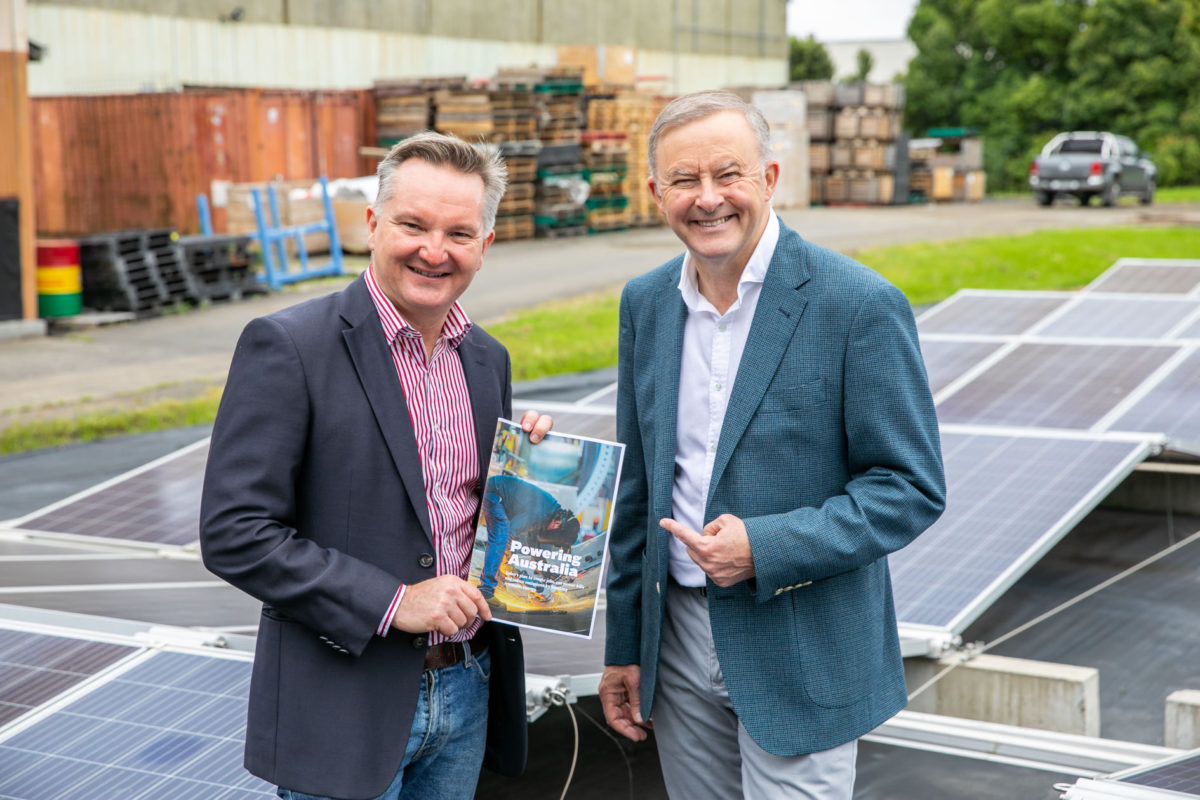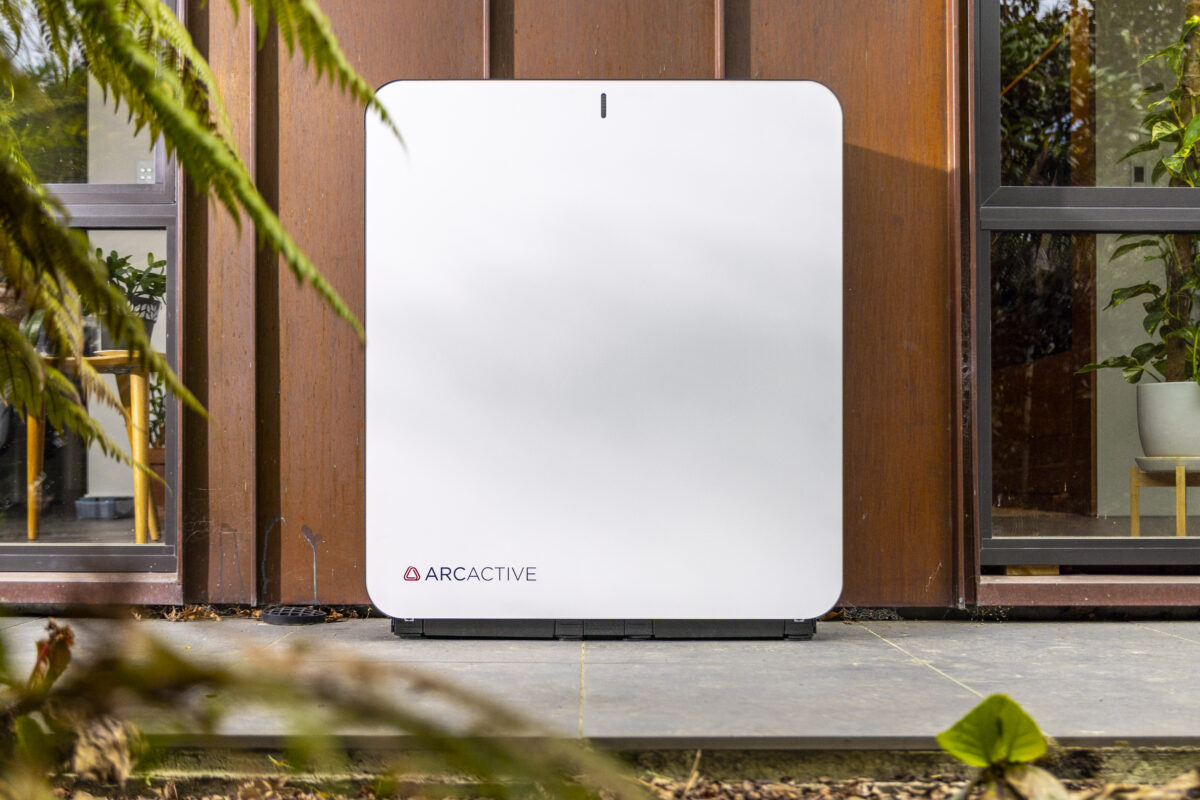Prime Minister Anthony Albanese has announced his new ministry, which will be sworn in at Government House today. Former shadow treasurer Chris Bowen is set to become the new minister for climate change and energy, taking over the portfolio from Angus Taylor.
Bowen was elected to the seat of Prospect, NSW in 2004, and is now the member for McMahon following the electoral redistribution in 2010. Bowen has served as the Shadow minister for climate change and energy since a shadow cabinet reshuffle in January 2021.
That reshuffle saw then shadow minister for climate change and energy, Mark Butler, a senior member of the Labor Left faction and author of Climate Wars (an account of the sordid history of Australia’s internecine climate politics) replaced by Bowen, a member of the Labor Right faction. This softening on Labor’s climate policy and rhetoric was hoped to attract more centrist voters, and judging by Labor’s stunning election victory, the decision paid off.
Today I announced my new ministry. Tomorrow, we will go to Government House to be sworn in and start delivering on a better future. pic.twitter.com/34TWSyHBHk
— Anthony Albanese (@AlboMP) May 31, 2022
Work to be done
Energy Networks Australia (ENA) welcomed the appointment of Bowen to the climate change and energy portfolio, with ENA CEO Andrew Dillon saying the sector is looking forward to working with Bowen to deliver Australia’s transition to a net zero emissions energy system.
“Australia’s energy networks have a vital role to play in decarbonising the energy system. Our members are aligned on the importance of creating a whole-of-system approach that sees transmission, distribution and gas networks working together to achieve Australia’s net zero ambitions,” said Dillon.
“Timely and efficient investment in new transmission is an urgent priority and we look forward to working with the incoming government to ensure its Rewiring the Nation policy delivers the more connected grid electricity customers need,” continued Dillon, who added that the newly elected government’s Powering Australia policy to convene an urgent national energy council meeting of state and territory energy ministers “is strongly supported.”
After the leadership of Angus Taylor saw much antagonism between state and territory leaders and the federal government, it is no wonder ENA is looking forward to working with a more coherent outfit.
Realignment with states and territories will be the first cab of the rank for Bowen. So far, investment and support for renewables have been severely lagging at the federal level, which is why states and territories have taken up the reins themselves.
Once the states and territories and the Commonwealth are on the same page, the big task will be arranging the processes and regulations around the development of the electricity transmission grid, especially if Australia is to meet Labor’s target of 82% renewables by 2030 or the more optimistic scenarios envisaged under the Australian Energy Market Operator’s (AEMO) Integrated System Plan (ISP).
During the election, Labor proposed $20 billion in finance for the expansion of the transmission grid in order to unlock Australia’s renewable energy potential. But increasing interstate infrastructure and unlocking proposed renewable energy zones will need more than just a proposed figure.
Of course, none of this mentions the problem pressing every Australian’s pocket right now, or at least, every Australian who hasn’t protected their back pocket with rooftop solar and, even better, a residential battery system. That is to say, surging energy prices.
Fearing embarrassment, former prime minister Morrison pushed the Australian Energy Regulator’s (AER) release of its new default market offer (DMO) until after the election. Thankfully Morrison was embarrassed anyway.
Nevertheless, the DMO means surging prices show no signs of stopping. The hikes are, in part, the result of geopolitical and macroeconomic circumstances. But as Bowen pointed out in a speech last week, “Higher prices are a result of nine years of policy failure … the fact of the matter is the lack of energy policy, the lack of investment in new energy, the lack of investment in renewable energy, and the lack of transmission over the last nine years, means that Australians are paying more for electricity than they should be.”
“Renewable energy is the cheapest form of energy,” Bowen continued. “The good news is that Australia now has a Government which will bring on more renewable energy through our investment in the grid.”
Giving Australia a climate change policy we can proud of will be a signature reform of the Albanese Government.
Thrilled to be appointed Minister for Climate Change and Energy.
The world’s climate emergency is Australia’s jobs opportunity.
Let’s go. pic.twitter.com/QPici4zMlb
— Chris Bowen (@Bowenchris) May 31, 2022
“Angus Taylor knew these power prices were going up. Angus Taylor knew that this report was coming out. Angus Taylor and Scott Morrison knew that the result of their policies was Australians paying more in their power prices. They got through an entire election campaign without telling the truth. They sat on this report, they approved its delay until after the election. This is very much the legacy of Angus Taylor, they put power prices up and they’ve been dishonest about it.”
Interestingly, the Australian Chamber of Commerce and Industry has already called on the Coalition to give bipartisan support to Labor’s energy policy. Whether the incoming shadow energy minister and the federal Coalition will listen is another matter.
Clean Energy Council (CEC) CEO Kane Thornton posted a letter to the new climate change and energy minister on Twitter last week, urging Bowen to make good on renewable energy pledges. “I hope you’re well rested,” said Thornton, “because there’s a lot to do, and not a minute to waste.”
“Mind, you do not have to do everything,” Thornton continued. “State and territory governments responded to the policy vacuum and stepped up … If we get it right, we put Australia back on the path to becoming a global clean energy superpower and restore our rightful place as a glowing example of a modern and prosperous economy powered by reliable, low-cost, clean energy. Saturday showed the Australian public is with us, so let’s get to it.”
Clear policy
Perhaps Bowen’s biggest job will be providing the much-needed clarity of policy that investors have been crying out for. The co-founder of global renewable energy investor Quinbrook Infrastructure Partners (QIP), David Scaysbrook, who had previously cited Australia’s federal policy inertia as a reason investors were weary, said the 2022 Election has put “Australia back on the map in the eyes of global institutions looking at renewables and decarbonising industry.”
The advantages of a clear policy on climate change have already been demonstrated by prime minister Albanese when he joined fellow leaders from the US, Japan and India at the Quadrilateral Security Dialogue (Quad) on his first day in office. And again by new Minister for Foreign Affairs Penny Wong, whose climate-oriented visit to Fiji played a major role in 10 Pacific nations rejecting a sweeping new agreement with China.
Albanese to the Quad: "We will act in recognition that climate change is the main economic and security challenge for the island countries of the Pacific. Australia will set a new target to reduce emissions by 43% by 2030, putting us on track for net zero by 2050." #AusPol
— Michael Mazengarb (@MichaelM_ACT) May 24, 2022
Wong’s pitch to the Pacific community strongly emphasised the newly elected Australian government’s determination to act on climate change, a plea well received by Fijian Prime Minister, Frank Bainimarama, who described his meeting with Wong as “wonderful” while also taking a swipe at former Australian Prime Minister Scott Morrison’s comments referring to the Pacific as Australia’s “backyard”.
Fiji is not anyone’s backyard — we are a part of a Pacific family. And our greatest concern isn’t geopolitics — it’s climate change.
In that spirit, I had a wonderful meeting with Foreign Minister @SenatorWong to strengthen our Vuvale Partnership with Australia. pic.twitter.com/RH80dPnCAk
— Frank Bainimarama (@JVBainimaramafj) May 27, 2022
Majority rules
With Labor very likely having secured a majority government with a 77th seat, prime minister Albanese won’t have to make deals with the crossbench to find a speaker, a crossbench greatly expanded by the influx of climate-oriented Teal independents. This may mean less pressure on the government to pursue strong policy on climate change.
However, numbers are still tight and this historical crossbench will no doubt play a big role in the next parliament, set to convene at the end of July.
This content is protected by copyright and may not be reused. If you want to cooperate with us and would like to reuse some of our content, please contact: editors@pv-magazine.com.









6 comments
By submitting this form you agree to pv magazine using your data for the purposes of publishing your comment.
Your personal data will only be disclosed or otherwise transmitted to third parties for the purposes of spam filtering or if this is necessary for technical maintenance of the website. Any other transfer to third parties will not take place unless this is justified on the basis of applicable data protection regulations or if pv magazine is legally obliged to do so.
You may revoke this consent at any time with effect for the future, in which case your personal data will be deleted immediately. Otherwise, your data will be deleted if pv magazine has processed your request or the purpose of data storage is fulfilled.
Further information on data privacy can be found in our Data Protection Policy.